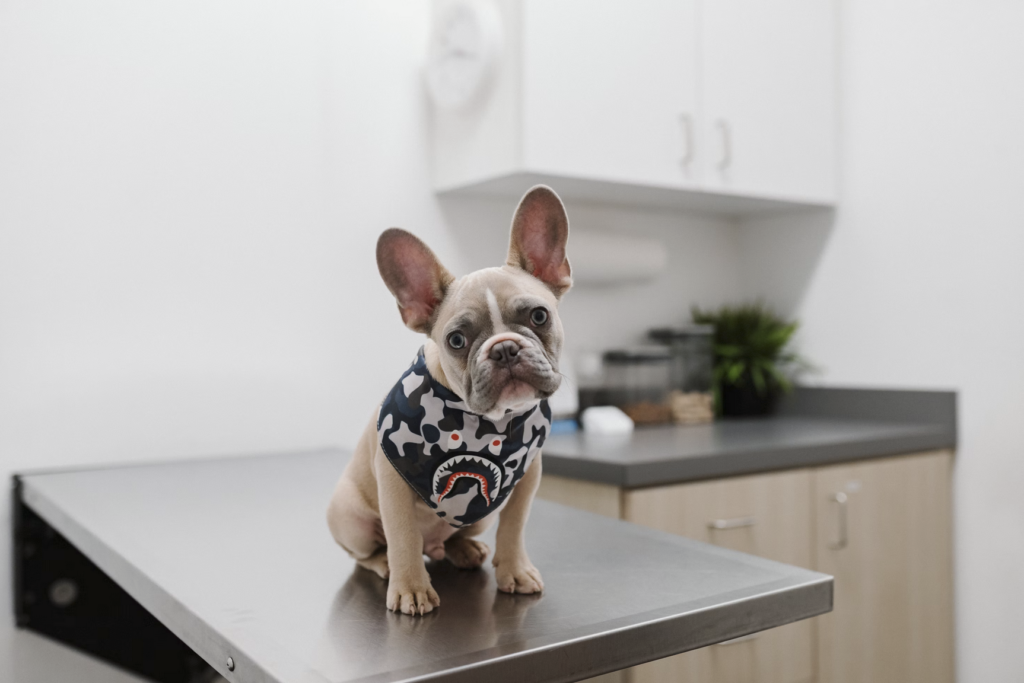A visit to the veterinary clinic can be a stressful experience—not only for your dog but also for you as an owner. In moments of concern or uncertainty, it’s easy to forget important details. To help ensure your dog receives the best possible care, prepare a list of questions before your appointment. This guide covers the key topics every dog owner should discuss with their veterinarian.
Questions Everyone Should Ask Their Veterinarian
It is extremely important to obtain comprehensive information from the veterinarian to quickly and accurately diagnose a dog. Before visiting a veterinary clinic, we encourage pet owners to write down a list of questions they want to ask the doctor. It is very easy to forget what you want to discuss when you’re worried about your pet’s health.
If you are not sure what questions to ask your veterinarian, here are some questions that will help you prepare for your visit to the veterinarian:

Is My Dog’s Diet Appropriate for Its Life Stage and Health Needs?
Ask Your Vet:
- “Am I feeding my dog the right type and amount of food for its age, breed, and activity level?”
- “Should I consider any dietary adjustments or supplements?”
Why It Matters:
Nutritional needs change as a dog grows and ages. A balanced diet tailored to your dog’s requirements supports proper development, energy levels, and overall health. Your veterinarian can help you interpret weight trends and recommend high-quality food that meets your dog’s specific nutritional profile.
Is My Dog’s Weight Within a Healthy Range?
Ask Your Vet:
- “How does my dog’s current weight compare to a healthy range for its breed and size?”
- “What can I do if my dog is underweight or overweight?”
Why It Matters:
Regularly monitoring your dog’s weight is crucial. Weight fluctuations can indicate underlying health issues. Whether your dog needs to lose a few pounds or gain some muscle, your veterinarian can provide advice on exercise routines and dietary changes.
Are My Dog’s Teeth and Gums Healthy?
Ask Your Vet:
- “What is the condition of my dog’s teeth and gums?”
- “Should we schedule a professional dental cleaning, or can I manage dental care at home with brushing and dental treats?”
Why It Matters:
Dental disease is common in dogs and can lead to painful conditions or even systemic infections if untreated. Routine dental care, both professional cleanings and home maintenance, is key to preventing periodontal disease and other complications.

What Vaccinations Does My Dog Need and What Is the Schedule?
Ask Your Vet:
- “What is the recommended vaccination schedule for my dog, including core vaccines like DA2PP and rabies?”
- “Are there additional vaccines, such as those for Lyme disease or Bordetella, that my dog should receive based on its lifestyle or region?”
Why It Matters:
Puppies typically begin their vaccination series as early as six to eight weeks of age, with booster shots recommended until they are about 16 weeks old. Vaccination needs can change as your dog ages or if its risk factors evolve. Discussing these details with your vet ensures that your dog is protected against common and severe diseases.
How Much Will Routine Examinations and Additional Services Cost?
Ask Your Vet:
- “What are the costs associated with regular checkups, blood tests, imaging, or potential surgeries?”
- “Do you offer payment plans or work with pet insurance to help manage these costs?”
Why It Matters:
Veterinary care costs can vary widely depending on the clinic, services rendered, and the region. Understanding what to expect financially allows you to plan ahead and avoid surprises when additional diagnostic tests or treatments are recommended.
Which Preventative Treatments Are Best for My Dog?
Ask Your Vet:
- “What parasite preventatives do you recommend for heartworms, fleas, and ticks based on my dog’s lifestyle and local risks?”
- “Are there options like oral medications, topicals, or collars, and what are their pros and cons?”
Why It Matters:
Regular preventative treatments help protect your dog from parasites that can lead to serious health issues. Since the prevalence of parasites can vary by region and lifestyle, your veterinarian’s expertise is critical in tailoring a prevention plan just for your dog.
What Is the Best Approach for Parasite Control, Including Internal and External Parasites?
Ask Your Vet:
- “Can you provide guidance on worming and other parasite control measures for my dog?”
- “How often should I administer treatments for intestinal worms, and what signs should I watch for?”
Why It Matters:
A comprehensive parasite control strategy covers both internal parasites (like roundworms and hookworms) and external parasites (such as fleas and ticks). Your veterinarian can help set up a regular schedule for deworming and preventive treatments, reducing the risk of infection and disease transmission within your household.
How Much Exercise Does My Dog Need?
Ask Your Vet:
- “Based on my dog’s breed, age, and current health status, how much daily exercise is recommended?”
- “Are there specific activities or routines you suggest to keep my dog physically and mentally stimulated?”
Why It Matters:
Exercise is a vital part of your dog’s overall wellbeing. The type and amount of physical activity needed can vary greatly between breeds. A tailor-made exercise plan helps maintain a healthy weight, improves behavior, and supports long-term health.

What Are the Available Communication Options and After-Hours Support?
Ask Your Vet:
- “Do you offer digital communication methods such as email, text, or even telemedicine consultations for minor concerns or follow-up questions?”
- “What is your protocol for emergencies or after-hours care?”
Why It Matters:
Understanding your clinic’s communication methods and emergency protocols can reduce stress and improve the continuity of care. As digital communication becomes increasingly common, knowing how and when you can reach your veterinarian is essential, especially when timely advice is needed.
What Additional Preventative or Behavioral Health Measures Should I Consider?
Ask Your Vet:
- “Apart from physical health, are there any recommendations to support my dog’s mental or behavioral well-being?”
- “Are there preventive care or training programs you suggest to help manage anxiety, destructive behaviors, or excessive energy?”
Why It Matters:
Overall health in dogs isn’t limited to physical well-being. Many behaviors reflect a dog’s mental and emotional state. Discussions about behavior training and mental stimulation not only help prevent problems down the line but also strengthen the bond between you and your pet.
FINAL WORDS
It is unquestionably a great idea for pet owners to thoroughly understand their animals’ behavior and emotions. While many people don’t appear to give it much thought, giving your pet a good amount of care and attention will increase the length of its life. Although taking a pet to the veterinarian for a health checkup can be somewhat nerve-wracking for beginner adopters and experienced pet owners, it is still a crucial requirement.
Remember to let your physician handle his business! His job is to listen to you describe the symptoms and irregularities you’ve seen, to determine any potential reasons for these symptoms using screening and diagnostic procedures, to arrive at a likely diagnosis, and then to recommend an appropriate course of therapy.
Hopefully, this article was helpful to you. And we hope you won’t face any problems with your pet’s treatment if you ask these important questions to your vet.
FAQ:
Why should my pet play? And how many?
This may seem like a strange question, but many owners don’t always know how much to play to stimulate their pets.
All pets must be played with in some way that suits their personalities, instincts, environment, and so on. This is especially true for pets or those who stay in the house for long periods.
For example, domestic cats need to exercise their hunting instincts, while domestic dogs need entertainment during the day to keep from getting bored, destroying objects, and getting depressed. Therefore, games are essential!
How often should I bring my pet to the vet?
Your vet will be able to advise you on how often you should take your pet in for routine examinations based on the breed, type, physical condition, age, physical condition, and even your pet’s lifestyle. Unless your veterinarian specifies differently, they should be followed independently of any other scenario.
